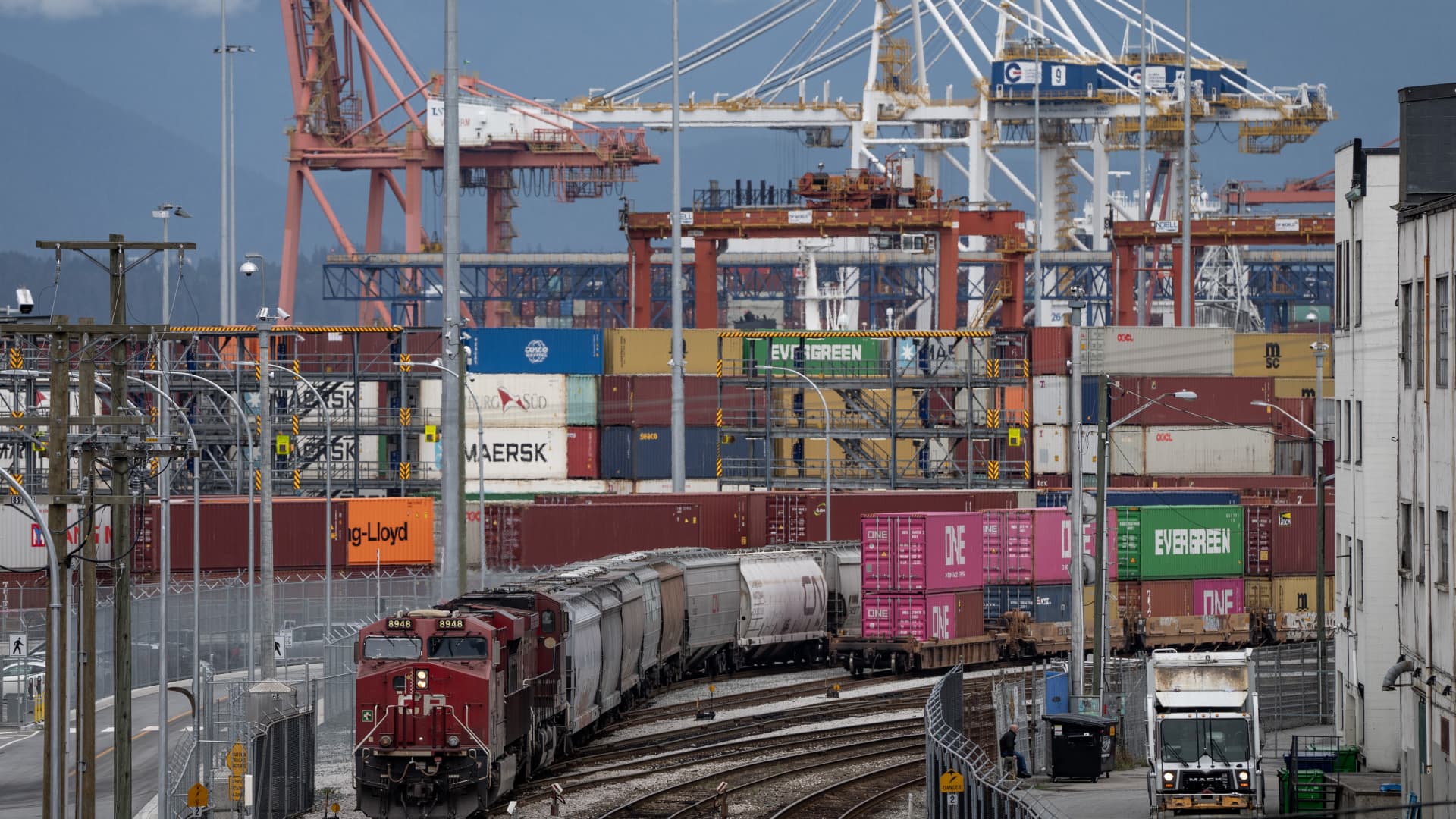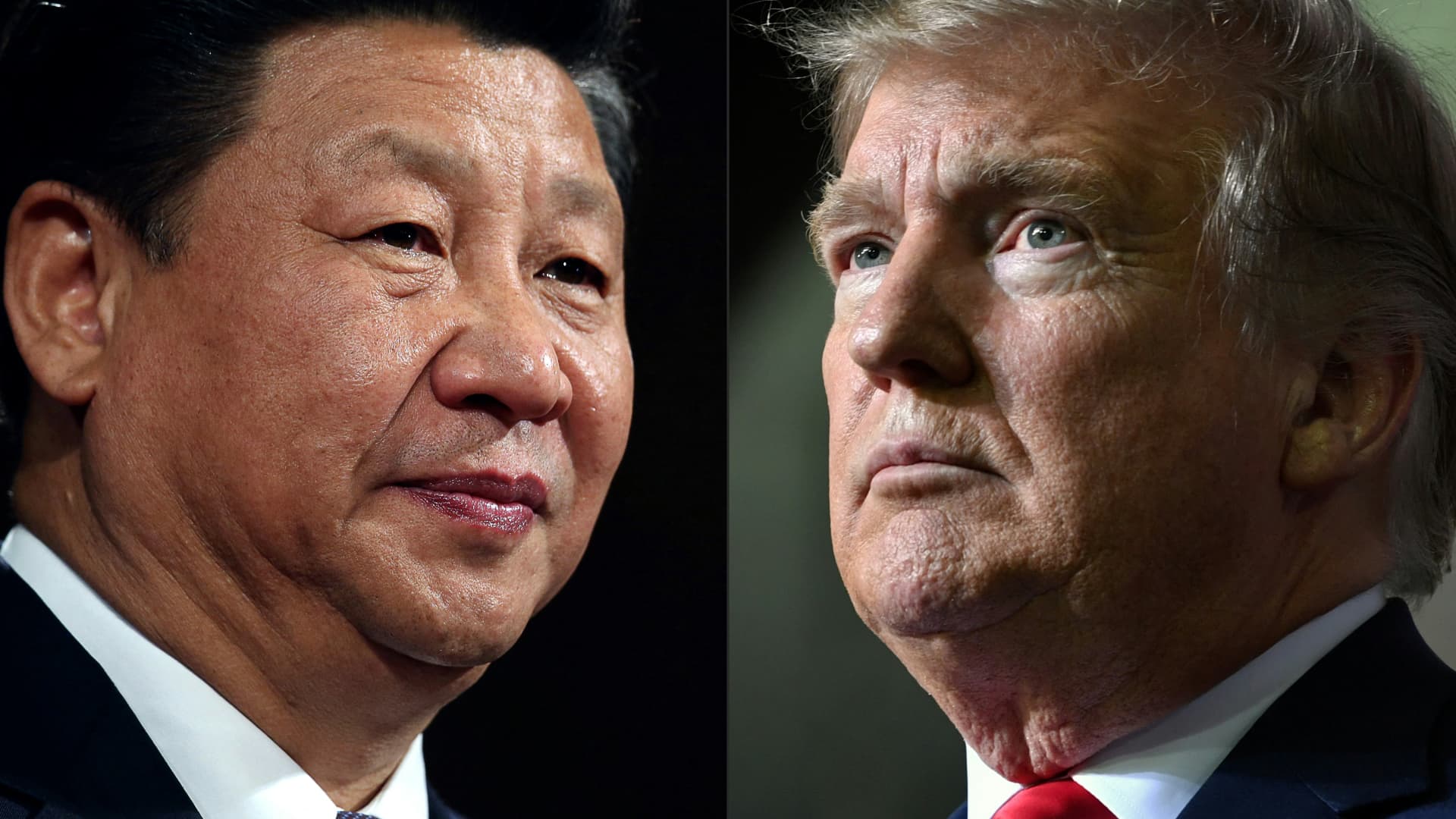A Canadian Pacific Railway Co. locomotive pulls a train at the Port of Vancouver in Vancouver, British Columbia, Canada, on Thursday, Aug. 22, 2024.
Bloomberg | Bloomberg | Getty Images
Canadian Labor Minister Steven MacKinnon has invoked federal powers to end work stoppages at the ports of Vancouver, Prince Rupert and Montreal, ordering binding and final arbitration between labor unions and ports ownership.
Strike actions by unions and ports ownership lockouts had hit both coasts of the key U.S. northern trade partner. Vancouver and Prince Rupert have been shut down since November 4, while Montreal dockworkers were locked out by ports management on Monday.
But the damage to the supply chain has been done, and will it take weeks to clear out the container congestion bound for both Canadian and U.S. companies.
“The disruption these disputes caused to retail supply chains were severe, and all at our busiest time of the year,” the Retail Council of Canada said in a statement to CNBC. “The ripple effects will continue to be felt. It will take weeks for our sector to recover but Canadians can rest assured that they will continue to get all their essential retail goods in the days ahead.”
Trade to the United States will take weeks to recover as well. Approximately 20% of U.S. trade arrives in the Canadian ports of Vancouver and Prince Rupert, where strikes broke out after union leadership and industry representatives failed to reach a deal before a cooling-off period expired. The ILWU Local 514 contract expired on March 31, 2023, with 96% of union members voting in favor of a strike in September.
According to the U.S. Department of Transportation, rail cross-border trade between Canada and the U.S. accounted for 14% of total bilateral trade of $382.4 billion in the first half of the year. Approximately $572 million in container trade arrives daily in the U.S. from Canada, according to U.S. Census data.
At a press conference, MacKinnon said that negotiations had hit a “total impasse” and the measure was needed to avoid any economic and reputational damage to Canada.
“If these work stoppages go on, the impacts will only worsen, and our well-earned reputation for reliability will be put at risk because of these impasses, more than $1.3 billion in value of goods is affected every day,” said MacKinnon.
This is the second time Mackinnon has stepped in to stop a strike in recent months. Under section 107 of the Canada Labor Code, the Labor Minister can order binding arbitration to end labor disputes. In August, he ended the lockouts at Canadian Pacific Kansas City and the Canadian National Railway Co. by referring negotiations to the Canada Industrial Relations Board.
Existing collective agreements will remain in place pending a new deal being reached between dockworker unions and the ports.











